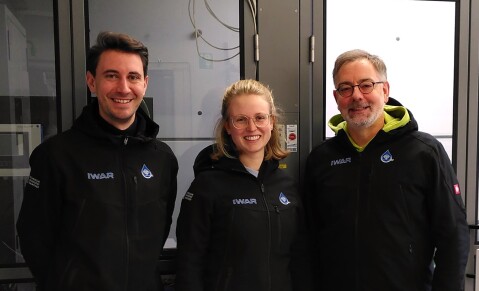Technical University of Darmstadt, Germany
What are your main tasks in the project?
TUDa is part of the case study aimed at recovering energy from the organic content in wastewater from the chemical industry. As a technical university, we bring practical expertise to the project. Anaerobic treatment plants will be used for the production of biogas as a sustainable energy source. The aim of the (sub)project is to develop an innovative process design that is ideally adapted to the industrial wastewater and its residues, minimizing the influence of inhibiting substances and maximizing the methane yield. We conduct both lab and pilot tests to validate and optimize the process, moving toward more efficient and sustainable solutions in wastewater treatment.
What are your goals?
Our primary goal is to maximize energy recovery from the industrial wastewater streams, achieving the highest possible biogas yield. This energy contributes to reduce the overall energy demand of our industry partner. By focusing on efficient treatment and significant reduction of organic content, we aim to deliver innovative and sustainable solutions for energy efficiency and resource management in the chemical industry.
What is your motivation and what excites you the most about your work?
Our motivation lies in the opportunity to contribute to a sustainable development within the industrial sector. Reducing energy consumption and making industrial processes more environmentally friendly is what drives our work. It’s especially exciting to see the technologies evolve by being involved at many stages of the project, from initial development to pilot-scale application.
Which impact do you think your research/work will have on the future?
We believe our work contributes significantly to the advances in anaerobic treatment of chemical industry wastewater, paving the way for a more environmentally sound industrial sector. We hope to inspire widespread adoption of these practices, fostering a more sustainable future for all.
15/11/2024

